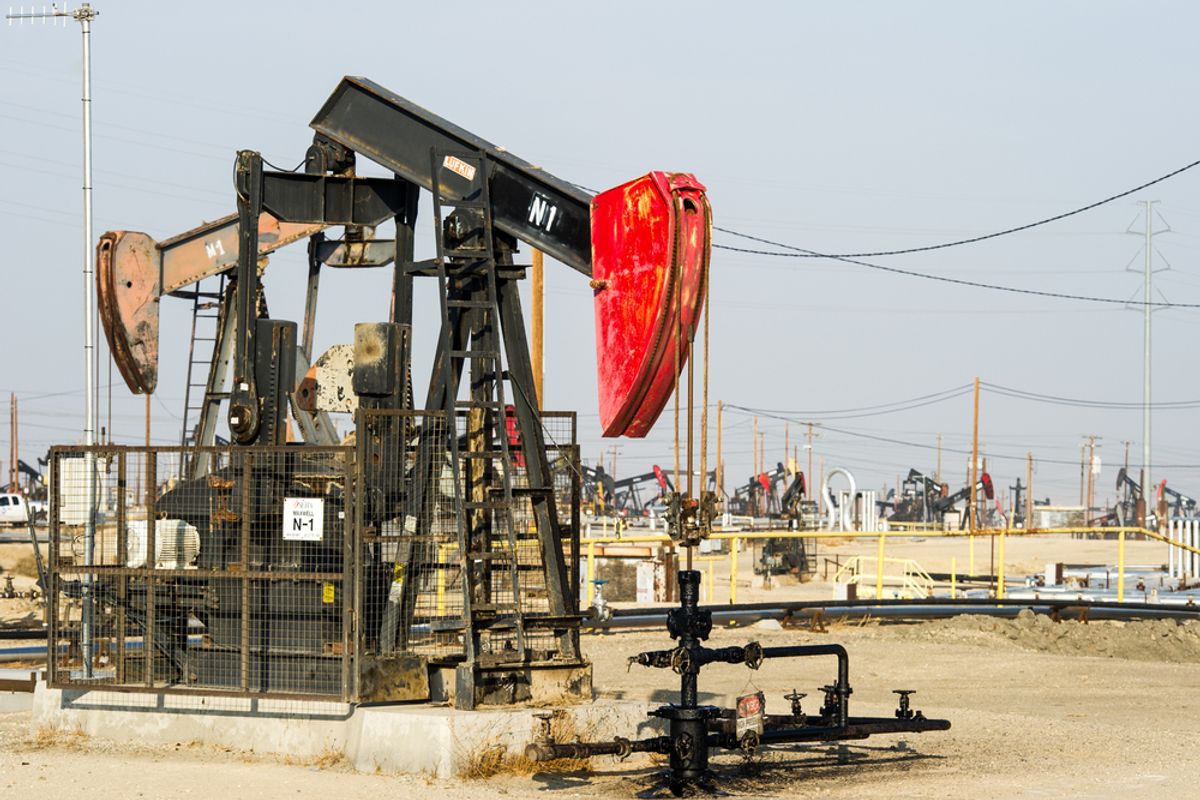The U.S. has proved that it's a lot quicker about extracting natural gas from its shale deposits than about studying the effects said extraction may have on the environment and public health. But some scientists have figured out a way to get past our drill first, ask questions later strategy: appealing to the masses to crowdfund their research.
High Country News reports on University of Missouri scientist Susan Nagel, who's $11,000 into her goal of raising $25,000 to fund research on the link between fracking and endocrine disrupting chemicals. Her previous work revealed that at least 11 of the chemicals commonly used in fracking have endocrine disrupting potential, meaning they're linked to cancer and reproductive and behavioral problems, among other health concerns. Forced, on a few small technicalities, to wait a full extra year for funding from the National Institutes of Health, Nagel instead turned to the new website Experiment.com, which is basically Kickstarter for scientists.
Here's more from HCN on Nagel's decision to go the crowdfunding route:
Nagel said she was driven toward crowdfunding in part by the paucity of federal money for fracking research. “U.S. EPA announced three years ago that they would be funding research about the safety of fracking,” wrote Nagel in an email, referring to the Environmental Protection Agency. “However, before they began accepting applications, that program was canceled. ” Though Nagel said the agency gave no explanation for that decision, she suspects the lack of federal funding for fracking research has political roots: the EPA has frequently been blasted by prominent Republican critics for its investigations into whether fracking pollutes drinking water, and President Barack Obama often cites the job-creating potential of the domestic oil and gas industry, whose parade would certainly be rained on by bad news about the health effects of drilling.
...Whether crowd-funded research is less susceptible to bias or influence peddling than work funded by industry – or even government – remains to be seen. It seems logical that a large and diverse donor pool would tend to dilute the influence of individual agendas: The University of Washington study of fracking and air quality, for instance, had 155 unique donors and the average donation was just $77.23 – hardly enough to bribe even an impoverished scientist.
"People are more likely to fund research that they feel an emotional attachment to," Experiment.com spokeswoman Rebecca Searles told High Country News. "But we actually think crowdfunding bias is an improvement over partial blind peer-review panels where the real bias is conflict of interest or politics or risk aversion or bureaucracy or ageism, etc. Crowdfunding, on the other hand, only requires that enough people care to see it happen.” What matters most is that the research gets done -- and when we're talking about a phenomenon that may have real, understudied impacts on human health, it might not be the worst idea to skip the middlemen and appeal to the people who are potentially at risk.

Shares